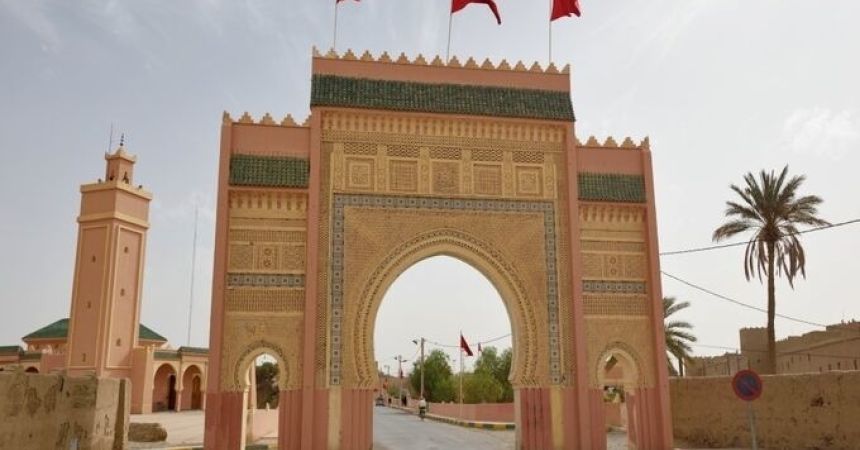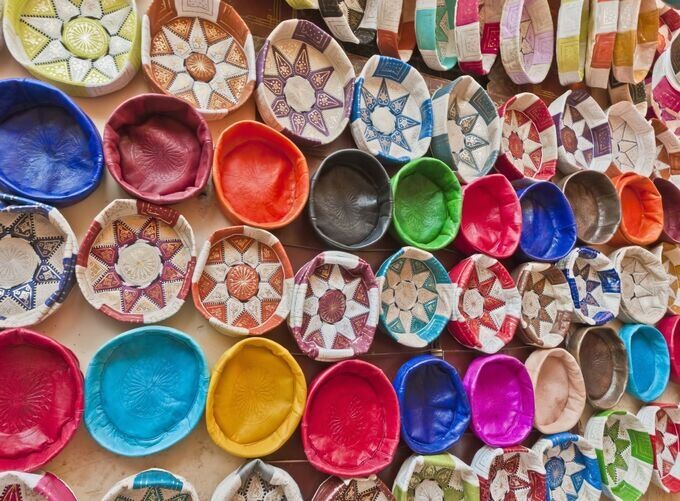
Morocco Currency: Everything You Need to Know
When planning a trip to Morocco, understanding the local currency is essential for a smooth and enjoyable experience. The Moroccan Dirham (MAD) is the official currency of Morocco, and knowing how to manage your finances while traveling can greatly enhance your trip. This comprehensive guide covers everything you need to know about the currency used in Morocco, including its history, exchange rates, best practices for currency exchange, tips for handling money, and more.
The Moroccan Dirham (MAD)
History of the Moroccan Dirham
The Moroccan Dirham has a long history dating back to the Middle Ages when the dirham was used as a unit of currency in various Islamic states. The modern Moroccan Dirham was introduced in 1960, replacing the Moroccan franc. The dirham is subdivided into 100 centimes.
Denominations
The Moroccan Dirham is available in both coins and banknotes:
- Coins: 1, 5, 10, 20, and 50 centimes, and 1, 2, 5, and 10 dirhams.
- Banknotes: 20, 50, 100, and 200 dirhams.
The coins and banknotes feature various designs, including prominent Moroccan landmarks, historical figures, and cultural symbols.
Symbol and Abbreviation
The symbol for the Moroccan Dirham is "د.م." or "DH." The currency code used in financial transactions is "MAD."
Exchange Rates
Understanding Exchange Rates
Exchange rates fluctuate based on various factors, including economic conditions, political stability, and market demand. It's important to monitor exchange rates to get the best value for your money.
Current Exchange Rates
As of [insert current date], the exchange rate is approximately:
- 1 USD = 9.5 MAD
- 1 EUR = 10.5 MAD
- 1 GBP = 12.0 MAD
These rates are subject to change, so it's advisable to check the current rates before exchanging money.
Where to Check Exchange Rates
You can check exchange rates online through currency converter websites, financial news platforms, or mobile apps. Some popular options include XE, OANDA, and Google Finance.
Best Places to Exchange Money
Airports
Airports often have currency exchange kiosks, but the rates may not be as favorable as other options. It's convenient for getting small amounts of local currency upon arrival.
Banks
Banks in Morocco offer reliable currency exchange services with competitive rates. Most banks are open from Monday to Friday, 8:30 AM to 3:30 PM. Some banks also have branches in major cities and tourist areas that offer extended hours.
Exchange Offices
Authorized exchange offices, known as "Bureaux de Change," are common in cities and tourist areas. These offices usually offer better rates than airports and are a convenient option for tourists.
Hotels
Many hotels offer currency exchange services, but the rates may be less favorable compared to banks and exchange offices. It's best to use hotel exchange services only for small amounts or in emergencies.
ATMs
Withdrawing cash from ATMs is a convenient way to get local currency. ATMs are widely available in cities and towns. However, be aware of any foreign transaction fees your bank may charge. Look for ATMs that are affiliated with major banks for better security and reliability.
Tips for Handling Money in Morocco
Carrying Cash
While credit and debit cards are widely accepted in cities and tourist areas, cash is essential for small towns, markets, and rural areas. It's advisable to carry small denominations for everyday transactions.
Using Credit and Debit Cards
Major credit and debit cards (Visa, MasterCard, and American Express) are accepted in most hotels, restaurants, and shops. However, smaller establishments and markets may only accept cash. Notify your bank of your travel plans to avoid any issues with card transactions.
ATMs and Cash Withdrawals
ATMs are a convenient way to withdraw cash, but it's important to use machines located in safe and well-lit areas. Be mindful of withdrawal limits and any fees associated with international transactions. It's also a good idea to carry a backup card in case of issues.
Safety and Security
Keep your cash, cards, and important documents secure. Use a money belt or travel wallet to protect your valuables from pickpockets. Avoid displaying large amounts of cash in public and be cautious when using ATMs.
Tipping
Tipping is customary in Morocco. In restaurants, a tip of 10-15% is standard. For guides, drivers, and hotel staff, small tips are appreciated. Even small acts of service, like helping with luggage, usually warrant a tip.
Budgeting for Your Trip
Accommodation costs in Morocco can vary widely depending on the type of lodging and location. Budget travelers can find hostels and budget hotels for as low as $40-70 per night, while mid-range hotels and riads (traditional Moroccan guesthouses) range from $100-250 per night. Luxury hotels and resorts can cost $400 or more per night.
Transportation
Transportation costs depend on your mode of travel. Public transportation, such as buses and trains, is affordable, with fares ranging from $5-10 for local trips and $40-70 for long-distance travel. Taxis are also reasonably priced, but it's important to agree on a fare before starting your journey. Car rentals start at around $90-140 per day, depending on the type of vehicle.

Activities and Sightseeing
Entrance fees for attractions and activities can add up. Budget for popular sights such as the Jardin Majorelle in Marrakech ($10-15), the Hassan II Mosque in Casablanca ($40-75), and guided tours of historical sites and natural attractions. Plan for additional costs such as camel treks, desert tours, and cultural experiences.
Shopping and Souvenirs
Moroccan markets, or souks, are a shopper’s paradise. From spices and textiles to pottery and jewelry, you’ll find an array of unique items. Remember to haggle, as it’s part of the shopping experience. Budget for souvenirs and gifts, keeping in mind that prices can vary widely depending on your bargaining skills.
Understanding and Using Local Currency
Familiarize yourself with the appearance and value of Moroccan banknotes and coins to avoid confusion during transactions. Pay attention to the size, color, and design elements of each denomination.
Avoiding Counterfeit Currency
Counterfeit currency can be an issue in some areas. Always exchange money at authorized locations and inspect your banknotes carefully. Look for security features such as watermarks, holograms, and unique textures.
Handling Change
It can be challenging to get change for large denominations in smaller shops and markets. Carry small bills and coins to make transactions smoother. When receiving change, count it carefully to ensure accuracy.
Negotiating Prices
Haggling is a common practice in Moroccan markets. Start by offering half the asking price and negotiate from there. Keep the process friendly and respectful. If you reach a price you’re happy with, it’s customary to finalize the deal with a handshake.
Banking and Financial Services
Moroccan Banks
Major banks in Morocco include Banque Populaire, Attijariwafa Bank, and BMCE Bank. These banks offer a range of financial services, including currency exchange, ATM withdrawals, and money transfers. Branches are common in cities and larger towns.
International Banks and ATMs
Many international banks have partnerships with Moroccan banks, allowing for easier access to ATMs and financial services. Look for ATMs that display your card's logo (Visa, MasterCard, etc.) for compatibility.
Traveler’s Checks
Traveler’s checks are not widely used in Morocco and can be difficult to cash. It’s best to rely on credit cards, debit cards, and cash for your financial needs.
Money Transfers
If you need to receive money while in Morocco, consider using services like Western Union or MoneyGram. These services have multiple locations in cities and tourist areas, making it convenient to receive funds.
Mobile Payments and Digital Wallets
Growing Popularity
Mobile payments and digital wallets are becoming increasingly popular in Morocco, especially in urban areas. Services like PayPal, Apple Pay, and Google Wallet are accepted at some establishments.
Local Mobile Payment Solutions
Local mobile payment solutions such as Wafacash and Barid Cash are also available. These services allow you to transfer money, pay bills, and make purchases using your smartphone.
Using Mobile Payments
Before relying on mobile payments, ensure that your chosen method is widely accepted at your destination. Download any necessary apps and set up your account before your trip.
Taxes and Fees
VAT (Value-Added Tax)
Morocco has a Value-Added Tax (VAT) that applies to most goods and services. The standard VAT rate is 20%, with reduced rates for certain items such as food and medical supplies.
Airport Taxes
Airport taxes are usually included in the price of your airline ticket. Check with your airline to confirm whether any additional fees apply.
Service Charges
Some hotels and restaurants may add a service charge to your bill. This charge is usually around 10%, but it's always good to check your bill carefully to avoid double-tipping.
Preparing for Your Trip
Before your trip to Moroccan customs regulations and financial services. This will help you understand what you can and cannot bring into.



